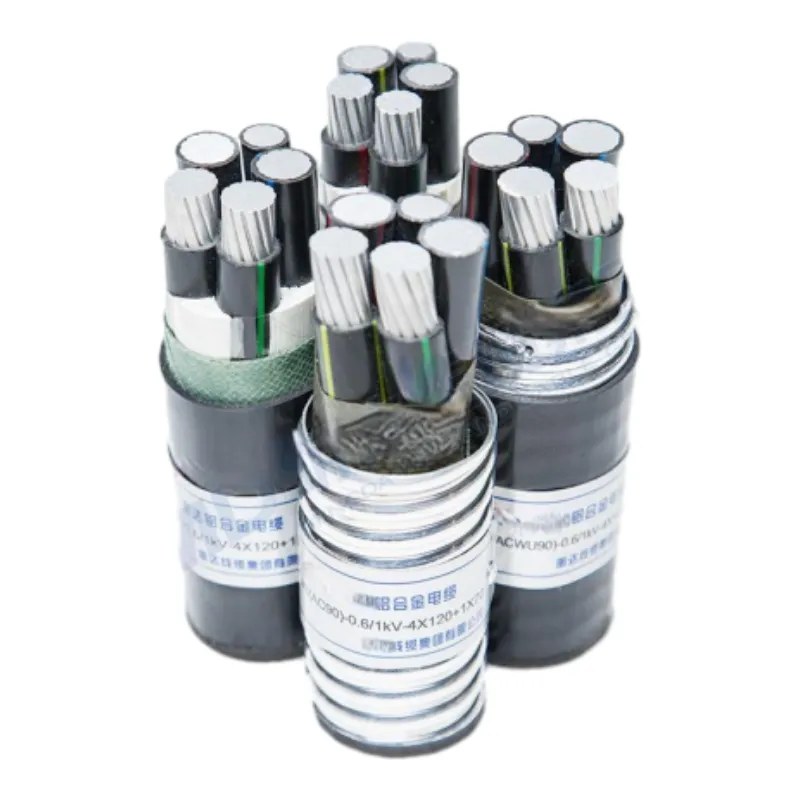Noy . 09, 2024 11:51 Back to list
Single-Core Electrical Cable for Efficient Wiring Solutions in Various Applications
Understanding Single Core Cable Wire Features, Applications, and Benefits
In the vast and ever-evolving world of electrical wiring, single core cable wire stands out as a fundamental component, playing a crucial role in various applications. This article aims to explore the characteristics, advantages, and uses of single core cables, helping readers understand why they are a preferred choice for electrical installations.
What is Single Core Cable Wire?
Single core cable wire consists of a single conductor, which can be made from various materials, primarily copper or aluminum. Unlike multi-core cables that comprise multiple conductors insulated individually, single core cables feature a single wire that can be insulated or uninsulated. The primary purpose of a single core wire is to conduct electricity efficiently, making it suitable for a wide range of electrical applications.
Features of Single Core Cable Wire
1. Simplicity and Flexibility The straightforward design of single core wires allows for easy installation and flexibility in various settings. They are easier to route through conduits and tight spaces than multi-core cables.
2. Electrical Conductivity Single core cables, especially those made from copper, boast excellent electrical conductivity, enabling efficient power transmission with minimal energy loss. This quality is essential in ensuring that electrical systems operate effectively.
3. Lightweight and Compact Due to having only one conductor, single core cables are lighter and generally more compact than their multi-core counterparts. This compactness can be advantageous in applications where space is at a premium.
4. Cost-Effective Typically, single core cable wires are more affordable than multi-core cables. Their straightforward design and reduced material usage contribute to lower manufacturing costs, which can translate to savings for consumers.
5. Variety of Insulation Single core wires can be found with various insulation materials, such as PVC, XLPE (cross-linked polyethylene), and rubber. This versatility allows them to be used in diverse environments, catering specifically to the needs of different applications.
Applications of Single Core Cable Wire
Single core cables find utility in numerous electrical applications. Some of the most common uses include
1. Domestic Wiring In residential wiring, single core cables are often used for lighting circuits and power connections within homes. Their ease of installation and reliability make them a popular choice among electricians.
single core cable wire

2. Industrial Applications In industrial settings, single core wires are frequently utilized for connecting machinery, control panels, and other equipment. The durability and conductivity of single core cables ensure efficient operations in demanding environments.
3. Automotive Industry Within automobiles, single core wires are used for various electronic controls, sensors, and ignition systems. Their lightweight nature contributes to overall vehicle efficiency.
4. Telecommunications Single core cables are also employed in telecommunications for signal transmission. Their effective conductivity is essential for maintaining signal integrity over distances.
5. Solar Power Systems In renewable energy systems, specific configurations often utilize single core cables to connect solar panels to inverters and batteries, providing a reliable means for power transmission.
Benefits of Using Single Core Cable Wire
The advantages of using single core cable wire are numerous
1. Efficiency in Power Transmission With minimal resistance and energy loss, single core wires ensure that power reaches its destination with high efficiency.
2. Ease of Identification With only one conductor, it is easier to identify connection points, reducing the likelihood of installation errors.
3. Versatile Across Applications The ability to customize insulation and size makes single core cables adaptable for various environments, whether residential, commercial, or industrial.
4. Reduced Risk of Overheating Single core cables have a lower risk of overheating compared to densely packed multi-core cables, which may produce excessive heat during operation.
5. Recycling and Sustainability Many single core cables, particularly those made from copper, can be recycled, contributing to sustainability efforts in the electrical industry.
Conclusion
Single core cable wire is an essential element in the electrical field, characterized by its simplicity, efficiency, and versatility. From domestic wiring to industrial applications, the advantages of single core cables make them a reliable choice for a myriad of electrical needs. Understanding these cables' features and benefits allows consumers and professionals alike to make informed decisions, ensuring safe and effective electrical installations. As technology advances, the role of single core cables will undoubtedly expand, continuing to serve as a backbone in the world of electricity.
Share